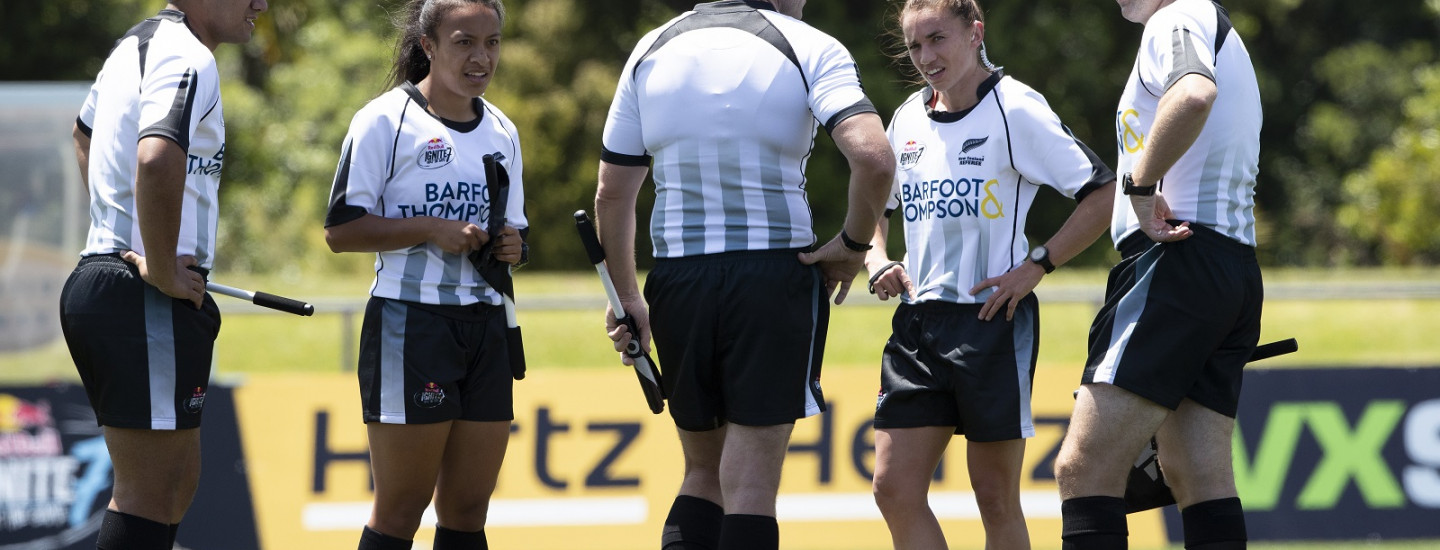Reporting Referee Abuse
New Zealand Rugby does not tolerate abuse in rugby.
Referee Abuse comes in a number of forms. At times it can be difficult to delineate what is genuine referee abuse (on-field, sideline, post-match) and what is player or coach dissent, sideline “noise”, or post-match commentary.
An impacting factor when defining referee abuse is the variance in individual tolerance to what is perceived as abuse and what is not. As a general rule, if a referee feels threatened or insulted, this will likely meet the threshold of referee abuse for that individual referee.
If the abuse occurs on the field and involves a player, the player should be sent off. If the abuse involves a coach or a spectator during a game, the game should be stopped and the offender sent from the ground. If the abuse happens after the game, the referee should remove themselves from the situation. In all cases, a referee abuse incident form should be filled out and processed by the governing rugby body in charge of the match.
Referee Abuse Notification Form
Defining Referee Abuse:
Physical Abuse:
- Grabs, pushes, shoves, punches, kicks, spits or otherwise makes other than accidental contact with a referee.
Verbal Abuse:
- Swears directly at a referee, calls a referee derogatory names, threatens a referee with violence, threatens a referee’s family in any manner, questions or challenges a referee’s integrity
- Use of verbal slurs, or mocking gestures or sounds in relation to a referee’s gender, race, religion, sexuality, age or any other discriminatory basis
- repeated instances during a match of verbal harassment and verbal challenge by players, coaches or spectators following any appropriate warnings to the extent that the cumulative effect on the match or the referee becomes overbearing or intimidating or which otherwise threatens the safety of players or the Referee
Physical Intimidation:
- Intimidates a referee by imposing their body in the referee’s personal space, marching a referee backwards or using stand-over tactics with the effect that the referee considers that he or she has fears for their safety.
